Mercedes-Benz unveils autonomous concept car designed for urban hipsters
German auto brand Mercedes-Benz has released images of its Vision Tokyo – a self-driving concept vehicle created for "young, urban trendsetters" that showcases how future car designs could be transformed into "hip living spaces".
The five-seater electric-powered Vision Tokyo was created for a generation of young city-dwellers who have grown up with constant access to digital media, according to Mercedes-Benz.
Mercedes-Benz's promotional trailer for the Vision Tokyo concept car
"The Vision Tokyo is a homage to the urban Generation Z, the cohort of people born since 1995 who have grown up with the new media," said Mercedes-Benz. "The role of the vehicle has changed for this global generation: it is no longer simply a means of getting around, but a digital, automobile companion."
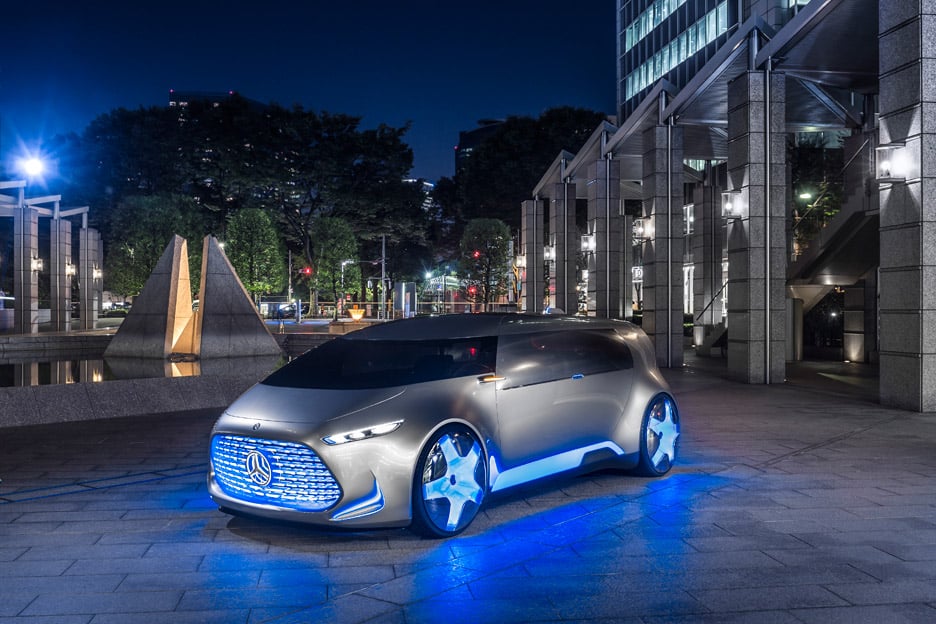
"[We aim] to show how the car of the future can be turned into a hip living space – a chill-out zone in the midst of megacity traffic mayhem," it added.
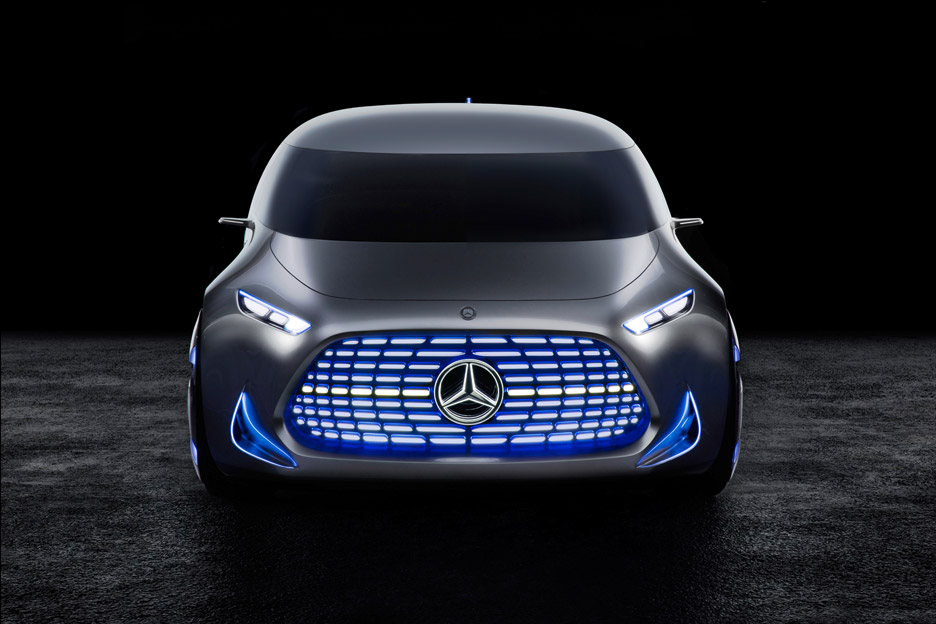
The vehicle, which is entered via an upward-swinging door, comprises a large communal interior with one sofa-like seat fitted around half of the cabin.
The steering wheel and driver's seat can be stored in compartments while the vehicle is in driverless mode, creating extra space for relaxing and socialising.
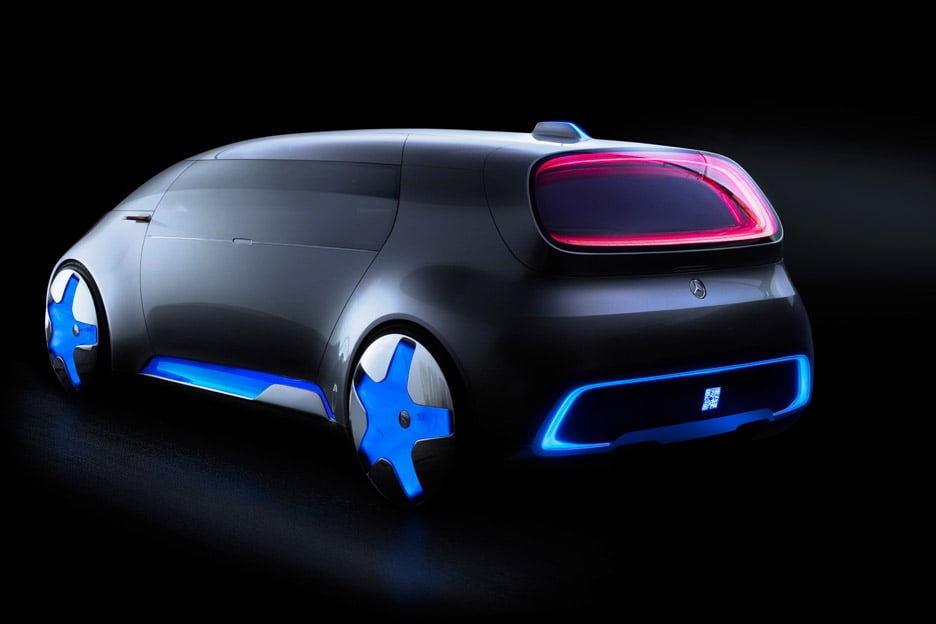
"This unique lounge-style arrangement allows everyone on board to enjoy the benefits of autonomous driving," said Mercedes-Benz. "For even though the members of Generation Z are frequent users of social media, they nevertheless prefer personal contact whenever possible."
The vehicle's interior features back-lit leather seating and the walls are wrapped with large LED screens. Displays for internet-based services such as maps, games and social media would appear as three-dimensional holograms at the centre of the communal space.
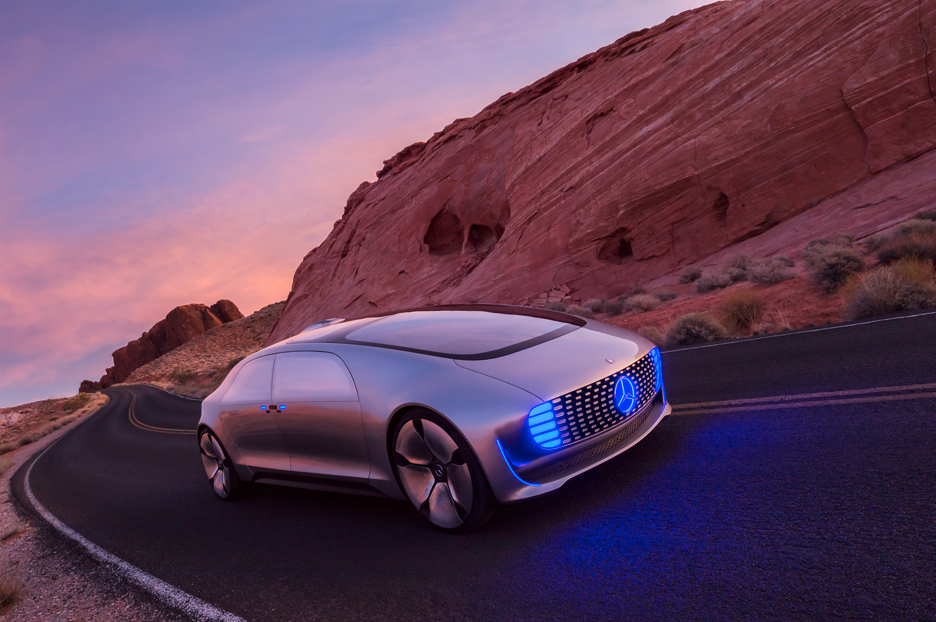
The Vision Tokyo follows on from the German manufacturer's F 015 Luxury in Motion, a smaller pod-like concept car unveiled earlier this year that also envisioned the future of automobiles as communal "living spaces".
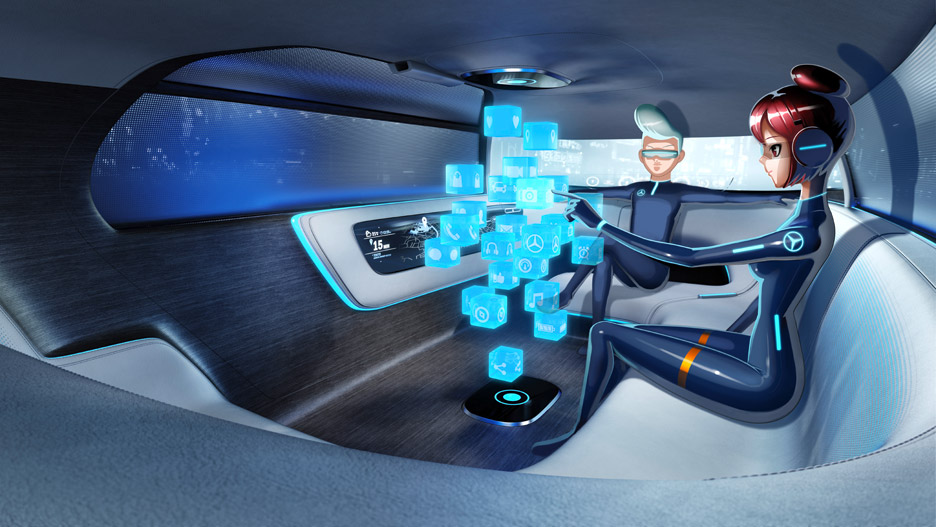
"Anyone who focuses solely on the technology has not yet grasped how autonomous driving will change our society," explained head of Mercedes-Benz Dieter Zetsche in January. "The car is growing beyond its role as a mere means of transport and will ultimately become a mobile living space."
Like the previous concept, the Vision Tokyo features monochrome paintwork with side windows tinted to match. The conventional windscreen has been replaced with a continuous stretch of glass, offering occupants uninterrupted views out, and exterior surfaces are illuminated with strips of blue lighting.
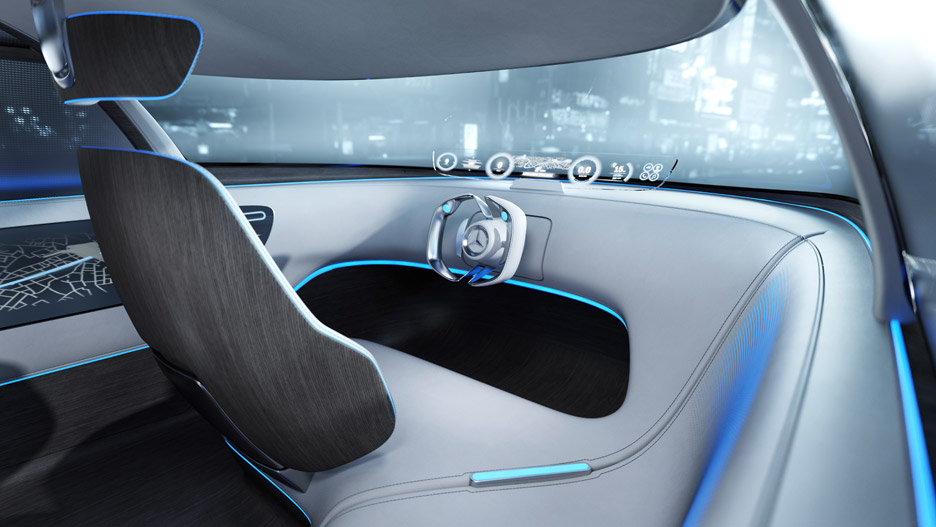
LED lights at the front and rear would offer a variety of functions, such as displaying sound patterns when music is playing inside the car or demonstrating to other road users whether the vehicle is in autonomous or manual-drive mode, as well as indicating the direction of travel.
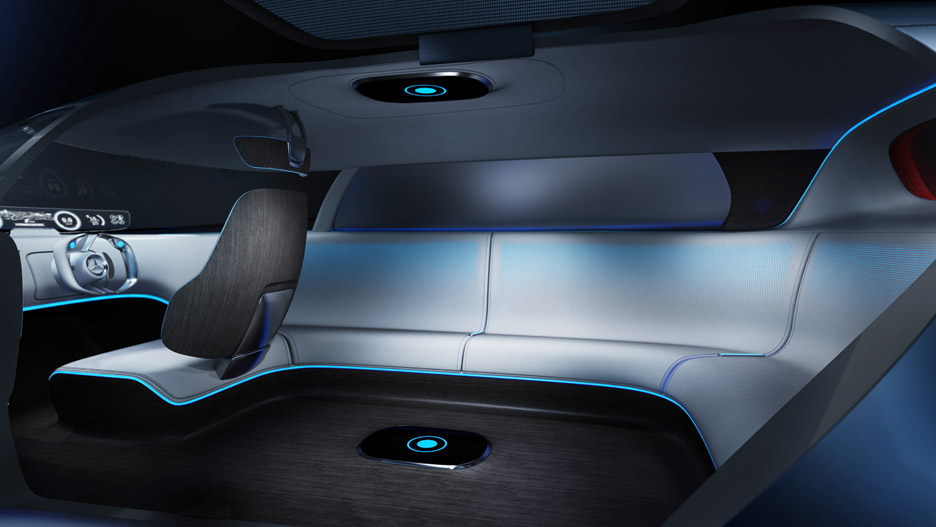
According to Mercedes-Benz, the car could be recharged contactlessly via induction and travel as far as 980 kilometres (609 miles) on a single charge.
The automotive industry is undergoing radical changes as manufacturers explore the possibilities of all-electic and driverless technologies.
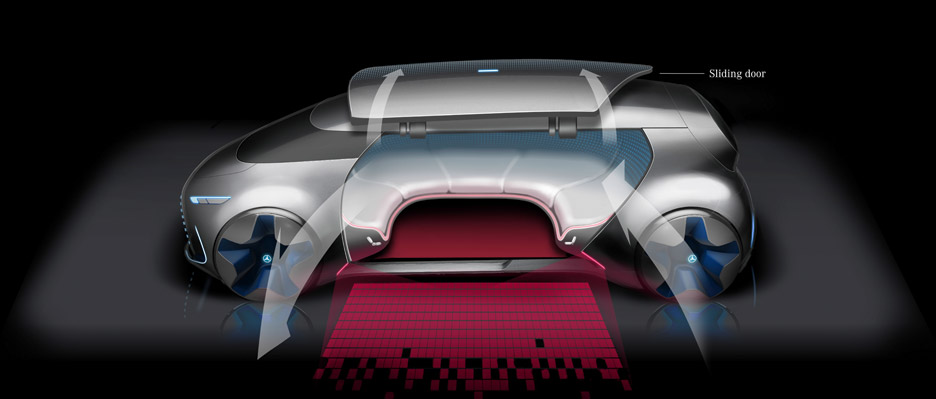
At this year's Geneva Motor Show, Audi, Bentley and Aston Martin entered the race to create long-range and energy-efficient electric vehicles, launching new battery-powered models. IN 2014, Tesla, the electric car company founded by Elon Musk, unveiled a roadster that can travel 400 miles on a single charge.
Tech companies are also developing vehicles. Google is currently testing its all-electric driverless car, while Apple is rumoured to be launching its own vehicle in 2019.
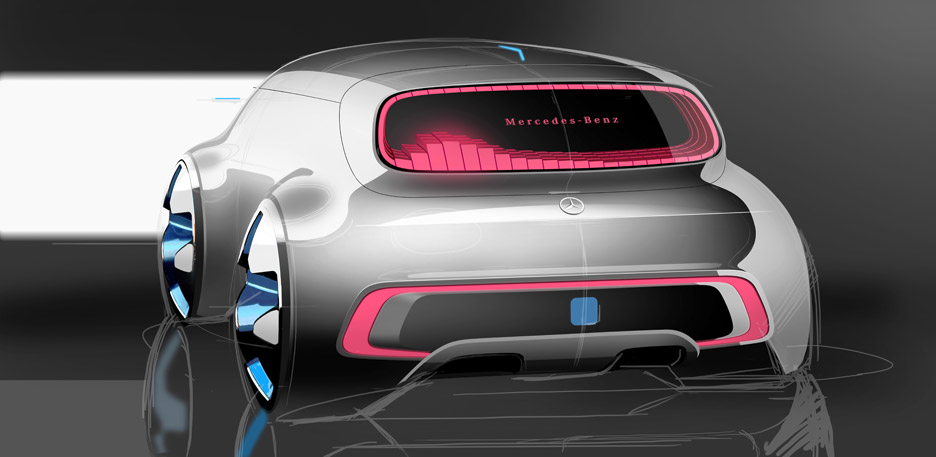
The Mercedes-Benz Vision Tokyo will be on display for the first time at the Tokyo Motor Show, which opens on 30 October and runs until 7 November 2015.